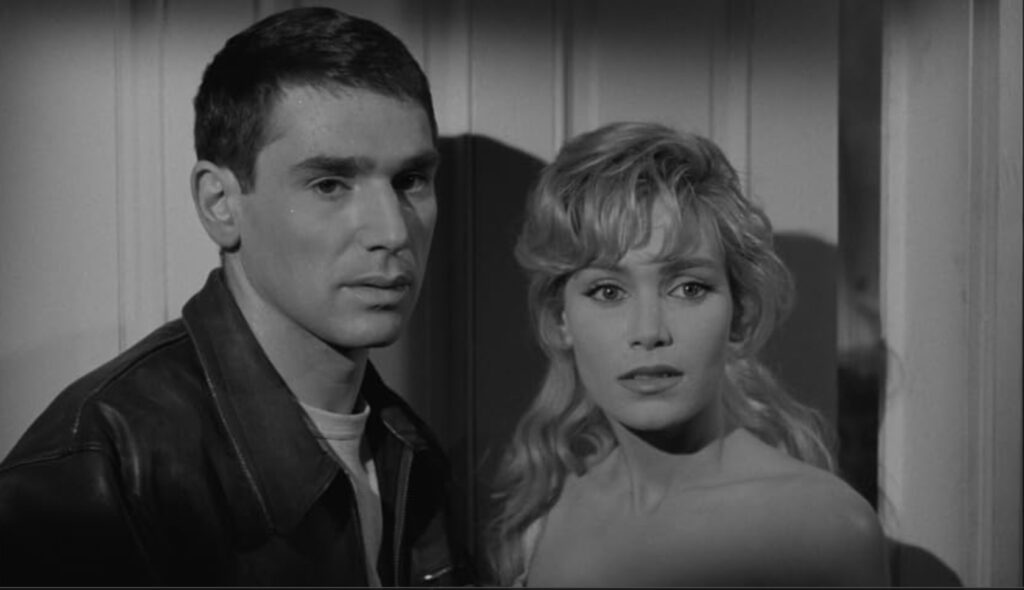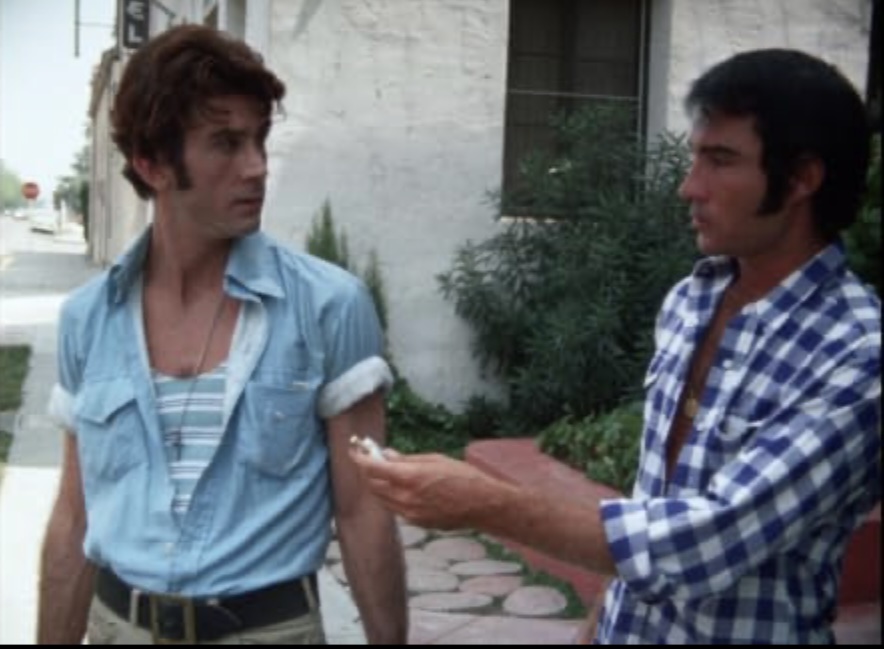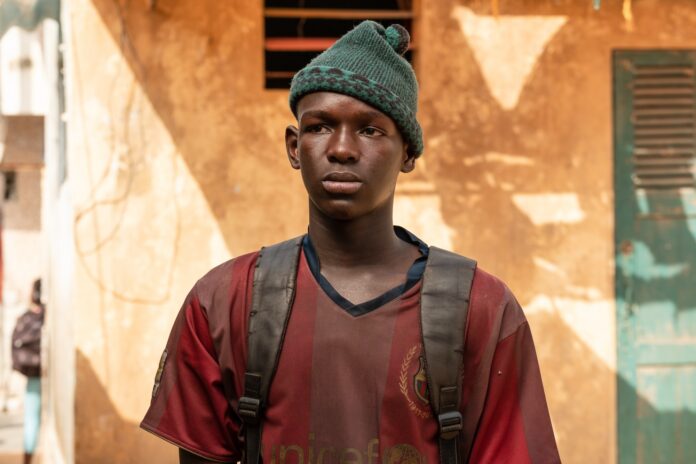That immigration is already an issue viewed with so little empathy in so many quarters is troubling, needless to say—because between rising political strife and climate-related woes worldwide, that matter is only going to get more pressing. Two new Italian movies take serious looks at the consequences in relatable terms, while an assortment of other new releases poke at different undersides to travel, the voluntary kind or otherwise.
Io Capitano
The last of this year’s Best International Feature Oscar contenders to open locally comes from Matteo Garrone, who is best known for the 2008 mafiaso epic Gomorrah, but has otherwise largely divided his career between disturbing character studies of masculinity run amuck (Reality, The Embalmer, Dogman) and somewhat grotesque fairy tales (Tale of Tales, one of the many recent Pinocchios). This latest is a departure in many respects. Still, it hews closest to Gomorrah in being an expansive fiction about figures on the lower rungs of a vast, corrupt, and cruel enterprise crossing international borders in defiance of the law.
Seydou (Seydou Sarr) and cousin Moussa (Moustapha Fall) are poor Senegalese teens who dream of success as musicians in Europe. Though amply warned of the dangers and disappointments they’re likely to face, they sneak off without telling their families. Almost immediately, these naive youths get shaken down by passport counterfeiters, border guards, military police, et al. They survive crossing the Sahara, only for a grim surprise at its end to separate them. Unwilling to travel further north without finding his friend, Seydou endures prison, torture, forced labor, and more—though he also encounters the odd honest man and/or mentoring kind soul who seeks to help rather than exploit him.
A lot happens here that might easily have curdled into maudlin or lurid melodrama. But Garrone has a very sure hand, with his nonprofessional actors as well as the matter-of-fact approach to many harsh twists of fate. Apart from a handful of magical-realist moments (framed as dreams) that didn’t quite work for me, Io Capitano ends up having a strong emotional impact precisely because it never feels like it’s manipulating those emotions. Seydou and Moussa’s journeys are often harrowing, yet they feel credible as any Global South emigre’s story, this large-scale narrative translating the grit of postwar Italian neorealismo to a new era of “global economics.” It opens this Fri/23 at SF’s Opera Plaza Cinemas and AMC Metreon, and on March 8 at the Orinda Theater in the East Bay.
The Legionnaire
A more concentrated portrait of immigration’s impact on a previously fairly homogenous society is this Italian first feature by Belorussian-born Hleb Papou. Daniel (Germano Gentile) tolerates the generally good-natured if reductive racial banter in his Roman police division as its sole African-heritage member. But he’s in the dedicated riot squad, and is loathe to let his uniformed colleagues in on the personal secret that will soon become a major on-the-job conflict: He has relatives, including an immigrant mother and activist brother, who still inhabit a derelict apartment building the city now wants emptied for demolition.
The 150 families living there think they have a deal with the authorities. But it seems those authorities ultimately regard them as squatters—and are not that concerned about rendering them homeless. Needless to say, Daniel’s divided loyalties are about to become very awkward. This short, sharply drawn narrative packs a punch, neither demonizing or soft-pedaling the flaws of fallible characters on all sides. The Legionnaire is now available On Demand via arthouse streaming platform Film Movement Plus.
Help us save local journalism!
Every tax-deductible donation helps us grow to cover the issues that mean the most to our community. Become a 48 Hills Hero and support the only daily progressive news source in the Bay Area.
Onlookers
What is it like to have your home constantly invaded by tourists, who constantly snap photos without really “seeing”? Well, that’s a familiar feeling in San Francisco. But a somewhat different level of separation is on display in this documentary-cum-gallery-piece by Kimi Takesue, which consists mostly of static observational shots of parallel lives in Laos. Despite its war-torn recent past, problematic human rights record, and status as a single-party Marxist-Leninist socialist republic, it has become a magnet for First World tourism.
Here, we see endless visitors from the West or wealthier Asian countries vacationing much as they would in, say, Cancun, Ibiza, or Goa—hanging at reggae bars, having innertube river parties, riding dune buggies or ziplines, et al. They seem almost to exist in a different universe from the schoolchildren, Buddhist monks, and other local citizens glimpsed going about their everyday business. There is no interaction between the two camps, at least as seen in Takesue’s film, which offers no commentary or explicit indictment, either. The result is an intriguing if curiously neutral essay from which you can draw your own conclusions… or none at all. Onlookers begins streaming On Demand from Metrograph At Home on Fri/23.

The Road to Shame
You wouldn’t necessarily expect a French movie from 65 years ago to touch on the unpleasant issue of sex trafficking, but indeed that turns out to be the principal peril faced in this rather potent 1959 obscurity. Garage mechanic Pierre (Robert Hossein, a personal fave in this era’s Gallic cinema) is suspicious when his beauteous fiancee Beatrice (Estella Blain) goes off once again on a nocturnal mission she refuses to discuss. She knows he’d disapprove of her dressing up in sexy gowns to entertain rich men—even if, as far as she knows, the duties expected of her go no further than being arm-candy.
That, however, turns out to be a false assumption. Once driven out to a country estate, she and several other pretty young women are going to find themselves drugged, for nefarious purposes we can easily guess at. Good thing Pierre (who’s already had his fears confirmed when he’s jumped by a couple thugs) follows her to that isolated locale, though soon he’s in hot water, too.
This is no prestige drama, but a tough little “B” crime meller handled with aplomb by director Edouard Molinaro, who later would become famous for such frothy farces as the original La Cage aux Folles. He does low-budget noir with more panache than you might expect, aided by a couple terrifically creepy villains, more nudity and violence than you’d get in a concurrent US production, and an original score by Art Blakey & the Jazz Messengers. Kino Classics has released it to Blu-ray; it is also available for streaming from Kino Now (more info here).

Drifter
Also feeling the somewhat unwelcome pull of the world’s oldest profession is the protagonist in this half-century-old curio, which failed to find distribution in the same year (1974) that A Very Natural Thing—billed as the first non-porn feature by, for and about the gay community—did, at least to a modest extent. You can see why: While Thing may seem very dated now, it promotes a new, Gay Liberation-fueled “gay is good” attitude, with a hero whose quest for same-sex love is seen as… well, very natural. Drifter, by contrast, has a sordid Midnight Cowboy kinda vibe, its library music swelling to underline the moral threat anytime our hero is being propositioned, or looks at a “dirty picture.” The gay world he keeps being drawn into is the alternately campy, predatory, and furtive one of typical pre-Stonewall depiction.
Such a ramblin’ man he’s actually called Drift (Joe or Joed Adair), that hero is a long, lean loner who makes his way from a different city to Los Angeles. He “pays” for each leg of his journey in sexual favors he seems to resent when they’re demanded, and when they’re not. He’s a bit of a cynical, smirking mess, on the rebound from one kinda-boyfriend who wanted emotional commitment without physical love, equally open/opposed to overtures from both men and women.
Shot, edited, produced and directed by the late Pat Rocco, who had already made a number of gay “adult” titles (and was the subject of Pat Rocco Dared, a documentary that played Frameline in 2022), Drifter has inevitable fascination as a lost artifact from an era when gays first left the closet en masse. But its 97 minutes can feel very long, as characters in various states of poorly defined (not to mention acted) torment carry on boring dialogues with one another, all ending in pathos and/or revulsion.
Equally labored in a similar soap-operatic vein was the prior year’s The Light From the Second Story Window, another little-seen gay indie feature made by multihyphenate David Allen, a friend and colleague in Rocco’s circle of LA queer filmmakers. That these movies were made at all in that time and place is striking, rendering them automatic historical value. But yowsa, with their amateur histrionics and “Oh I feel so sick and dirty!” emotions, they sure are hard to watch now. Drifter is also now available on Blu-ray, this one from Kino Cult, and it comes with additional materials including four of the director’s late 1960s shorts.





